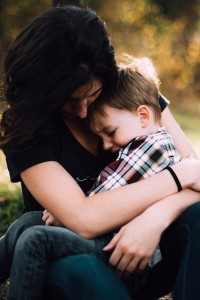by Jane Malcolm
 I was scrolling through my twitter feed when I came across a headline in a Scottish newspaper which said “the gym with treadmills for toddlers”. The article was about a new gym, opened to combat obesity in young children. There followed a video, which horrified me, of one child of around three years old in boxing gloves hitting a punch bag and another two-year-old child stumbling upon a treadmill. All the equipment was brightly coloured and scaled down to toddler size but all I could think was: “What happened to just running around playing?”.
I was scrolling through my twitter feed when I came across a headline in a Scottish newspaper which said “the gym with treadmills for toddlers”. The article was about a new gym, opened to combat obesity in young children. There followed a video, which horrified me, of one child of around three years old in boxing gloves hitting a punch bag and another two-year-old child stumbling upon a treadmill. All the equipment was brightly coloured and scaled down to toddler size but all I could think was: “What happened to just running around playing?”.
It reminded me of a conversation with Sue Palmer following a screening of the film “Resilience”. We were discussing the lack references to play and love (‘love’ is my pet subject as it I am studying ‘love in Early Learning and Care’ as my PhD research study) in the list of interventions to support children and adults with ACEs (Adverse Childhood Experiences). We got into a long discussion about how we, as a consumer society, have made things very complicated. Love and play are essential to healthy child development and they don’t cost anything!
Obviously I am not naïve – not every child has a life where love and play come easily – but creating colourful gyms for toddlers to exercise in (never mind the ethical questions around child development) sets the bar well out of the reach of many families. How did we get to this stage? Is making your two year-old child stumble on a treadmill either loving or playful?
 My research in part considers why early years professionals find it hard to use the word ‘love’ to describe what we do. Participants in my study group used a whole host of different words to say ‘love’ without actually saying it. There was concern over child protection but mostly it came down to adhering to policies and procedures set out nationally around what they were ‘allowed to do’ and the way these are interpreted at a local level. One participant sadly said ‘Yeah, you are not allowed to give them a full hug, you are only allowed to do one arm’. Which brings me to the subject of touch. Through my data collection period I spoke to many practitioners who said they had been told off for hugging, or having physical contact with a child, with the reason being it is against the policies.
My research in part considers why early years professionals find it hard to use the word ‘love’ to describe what we do. Participants in my study group used a whole host of different words to say ‘love’ without actually saying it. There was concern over child protection but mostly it came down to adhering to policies and procedures set out nationally around what they were ‘allowed to do’ and the way these are interpreted at a local level. One participant sadly said ‘Yeah, you are not allowed to give them a full hug, you are only allowed to do one arm’. Which brings me to the subject of touch. Through my data collection period I spoke to many practitioners who said they had been told off for hugging, or having physical contact with a child, with the reason being it is against the policies.
Part of the aim of my study is to help the Lead Practitioner become comfortable with the concept of loving the children as part of their professional identity. There have been other studies (Page, 2011, 2016; Cousins, 2015) which have supported practitioners to deliver ‘professional love’. However, if the Lead Practitioners are reluctant to support staff because of policy then the practitioners will be reluctant to deliver loving care. I challenged my participants with the words ‘intimacy’ and ‘passion’, and initially they were reluctant to say that the care they provided was intimate or passionate. But after careful examination of the actual meanings of these words – as opposed to the meaning that we have come to associate them with (i.e. sexual or romantic relations) they began to realise that intimate and passionate care were actually part of the care that they provided for children.
 So back to touch. I came across an article which was wonderfully entitled “Please touch the children: appropriate touch in the primary classroom” (Owen and Gillentine, 2010) which identified the two aspects of our dilemma about touching children, the first being we know children need to be touched – it is a natural part of human interaction but at the same time we are worried about the dangers relating to children being touched. This worry is valid, and we should all be vigilant about the concerns around child protection. However, if we want child protection procedures to be anything less than counter-productive, they should not inhibit what is natural human interaction. (Byrne, 2016).
So back to touch. I came across an article which was wonderfully entitled “Please touch the children: appropriate touch in the primary classroom” (Owen and Gillentine, 2010) which identified the two aspects of our dilemma about touching children, the first being we know children need to be touched – it is a natural part of human interaction but at the same time we are worried about the dangers relating to children being touched. This worry is valid, and we should all be vigilant about the concerns around child protection. However, if we want child protection procedures to be anything less than counter-productive, they should not inhibit what is natural human interaction. (Byrne, 2016).
In my mind, touch is part of love. The many words my participants used to describe how they demonstrate love, such as compassion, nurturing, care and sensitivity, are all components of love – as is touch.
There is a lovely quote in the film ‘Resilience’ which I noted down and have also mentioned in my own blog (https://janeymphd.blogspot.co.uk/). The quote states: ‘Naming the scary thing makes us feel safer’. We are generally as a nation people who like to stick to the rules, because it makes us feel safe; we know the rules are there to protect people. Love is scary, it is hugely emotive, difficult to describe, can cause huge emotional upset, but love isn’t the reason for child protection issues. If children experience real love then they build resilience towards times when they are presented with situations that are not loving. They know what love is.
Lead Professionals need to embrace love as part of their professional identity and develop ways of managing love-led practice rather than ‘telling staff off’ because they are breaking the rules. And finally as to the rules themselves, I challenge policy makers and guideline developers to include love in their documents – not the components of love, but actually use the word love. Make it acceptable for staff to love the children in their care. Let’s name the scary word – Love!
Jane Malcolm is studying for a PhD at the University of Edinburgh
References
Byrne, John (2016) Love in Social Care: Necessary Pre-Requisite of Blurring of Boundaries. Scottish Journal of Residential Child Care. 15 (3) 152 – 157.
Cousins, Sarah Bernadette (2015). Practitioners’ constructs of love in the context of early childhood. Education and Care: A Narrative Enquiry. Doctorial Thesis. School of Education. University of Sheffield.
Cousins, Sarah Bernadette (2015). Practitioners’ Constructions of Love in Early Years Care and Education. Paper for TACTYC Conference.
Owen, P and Gillentine, J (2011). Please touch the children: Appropriate touch in the Primary Classroom. Early Child Development and Care. 181 (6): 857 – 868
Page, Dr Jools (2016). Role of ‘Professional Love’ in Early Years Settings studied by University of Sheffield Researchers. Available online at www.sheffield.ac.uk/news/nr/professional-love-early-years1.543307 Accessed 17/3/17.
Page, J (2011). Professional Love in Early Years Settings: A Report of the Summary of Findings. The University of Sheffield.


